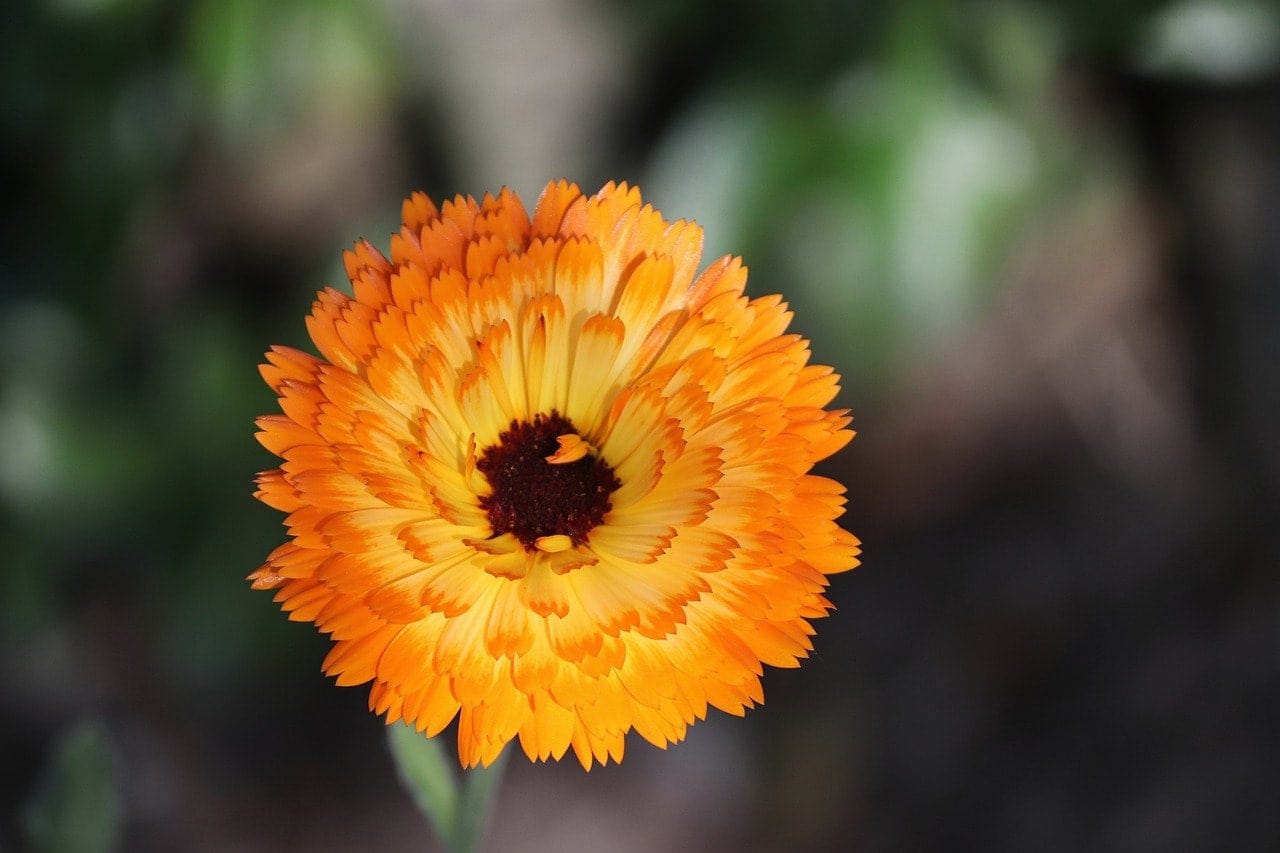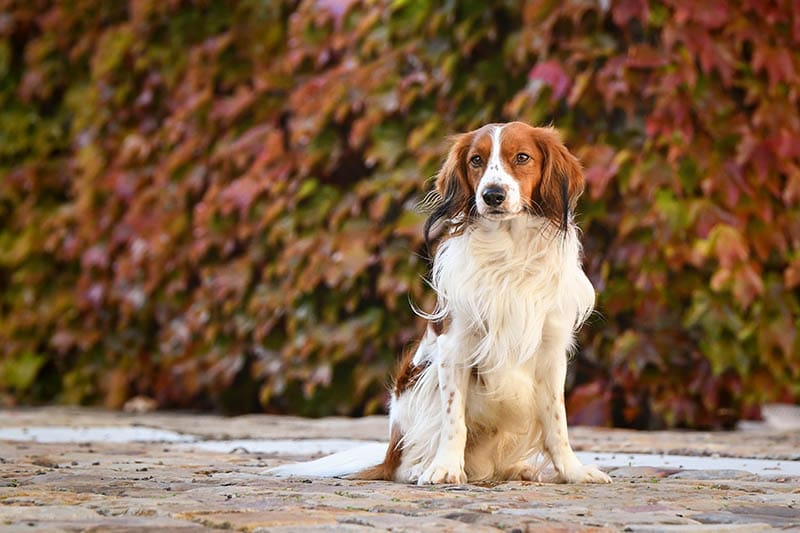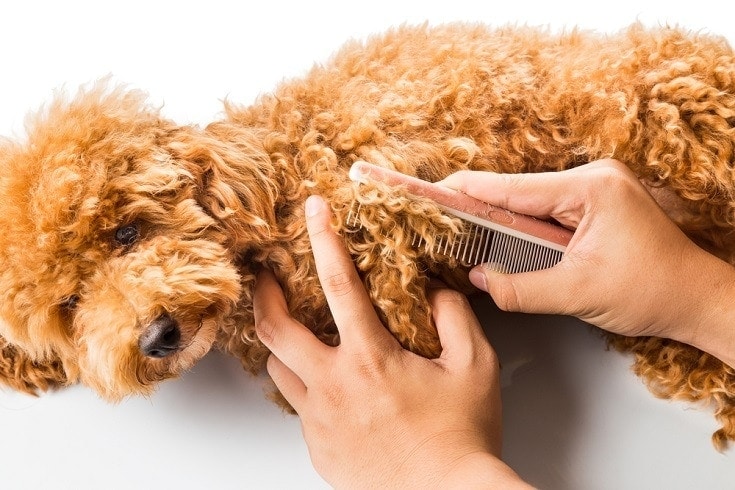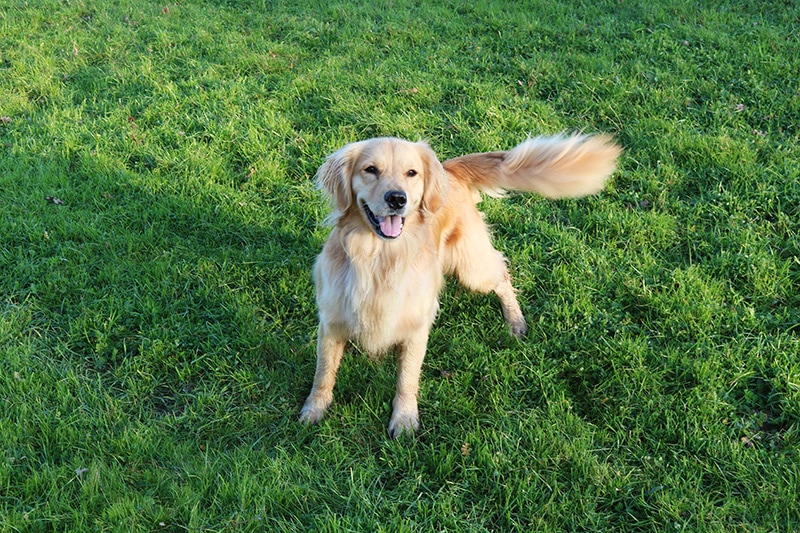Are Marigolds Poisonous To Dogs? Vet Approved Safety Advice
Updated on

If your dog got into your flower bed full of marigolds and ate some of the plants, don’t panic! The good news is that marigolds are only mildly toxic to dogs because they can cause minor skin irritation and gastrointestinal tract irritation. However, this can vary by the species. If your dog likes to dig in your garden full of marigolds, it’s best to keep them out to avoid any minor skin irritation and tummy irritation.
What Are Marigolds?
Marigolds are used as ornamental annuals and are quite easy to grow, especially for the beginner gardener. Their vibrant blooms include yellow, orange, copper, gold, red, brass, or white. They thrive in full sun and have abundant flowers until the first frost.
Marigolds are native to Mexico and Central America but are popular worldwide. Many gardeners use them as pest repellents due to their distinct odor, as rabbits and deer find the odor unpleasant and will stay away. These plants are also said to deter mosquitos, flies, and other pesky pests.
Are Dogs Attracted to Marigolds?
A dog’s nose is significantly stronger than a human’s, and the odor the blooms emit may attract your dog. Or, they may be attracted to the vibrant colors or any critters that have investigated the plant. Dogs are curious and are always exploring their surroundings. That said, it’s best to keep potentially harmful objects out of sight.

What Are the Signs of Marigold Exposure in Dogs?
As mentioned, marigolds are only mildly toxic to dogs, but that doesn’t mean your dog will not exhibit negative signs from having ingested or messed around with these beautiful plants. If your dog has sniffed, eaten, or simply dug around your marigold garden or planter, signs to watch for include:
- Vomiting
- Diarrhea
- Drooling
- Redness/irritation on the skin, eyes, or nose
What Do I Do if My Dog Ate Marigolds?
You can always call the Pet Poison Helpline if your dog has been mischievous and destroyed your marigolds. They can assist you 24/7 and can give you advice on how to make your dog more comfortable until the signs pass. It’s also a good idea to inform your veterinarian in case IV fluids or other treatments need to be administered due to excessive vomiting and diarrhea. This is especially true for senior dogs or dogs who have a medical issue, such as kidney problems. However, most dogs only experience mild reactions.

Tips for Keeping Your Dog Healthy and Safe
When you’re a dog owner, it’s essential to familiarize yourself with common household plants that can be toxic to your canine kiddo. Dogs are curious and can easily expose themselves to something harmful.
If you have potentially toxic plants in or around your home, ensure you keep them out of reach from your dog. For outdoor plants, you can create a barrier to keep your dog out, such as placing a fence around your garden and be sure to supervise them when they are out.
For indoor plants, place any toxic plants you may have up and out of reach from your dog, such as on a baker’s rake or in a room where your dog is not allowed. The best option, however, is to avoid having toxic plants in or around your home to begin with to ensure your dog’s safety.
Final Thoughts
Marigolds are beautiful plants that add lovely color to your garden or home. So, you can plant them knowing they are not highly toxic to dogs. However, still proceed with caution, as these plants can cause minor tummy upset or skin irritation if exposed. If you know your dog is particularly curious and likely to chew on plants, it is best to choose other pet-friendly plant options for your home and garden to ensure their safety.
Featured Image Credit: manfredrichter, Pixabay













